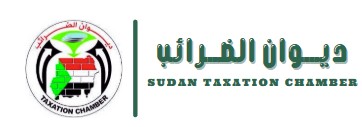About Taxes
Providing distinguished and efficient tax services to build an aware and compliant tax community that fulfills its legally due taxes and actively contributes to the process of development and nation-building.
Taxes are a vital and fundamental source of public revenue for the state, significantly contributing to covering its expenditures across all sectors and directly influencing economic activities.
They serve as a key instrument for redistributing national income, encouraging investment, and financing development projects. Moreover, they play a crucial role in shaping and implementing the state’s overall financial and economic policies.
The primary objective of taxation is to achieve social justice by ensuring that all income is subject to taxation, so that every capable individual contributes their fair share to public expenditures and national obligations.
Additionally, taxation fosters trust and partnership between the state and its citizens—citizens trust that the state will serve them fairly and justly, while the state relies on its citizens as partners who will help secure public revenue and oversee its proper allocation.
Furthermore, tax revenues support key national goals, including expanding the economic base through infrastructure development to enhance economic capacity, generating sustainable revenue sources for the state to finance its activities, and promoting balanced sectoral and regional development to ensure national unity through sustainable growth.


History
Taxes are a primary source of support for the general budget, as they are used to finance development projects, infrastructure, and public services.
In Sudan, taxation has deep historical roots, closely linked to the evolution of governance and administrative systems in the country.
With independence in 1956, taxes became one of the main sources for supporting the state budget. New tax laws were introduced to regulate revenues, including income taxes, customs duties, and corporate taxes.
During the 1980s and 1990s, Sudan underwent economic reforms that brought significant changes to the tax system. The introduction of sales tax aimed to expand the tax base, and efforts were increased to reduce tax evasion and improve tax collection efficiency.
More recently, the tax system has been modernized to include the Value Added Tax (VAT), which replaced the sales tax. Electronic systems have also been adopted to facilitate tax collection and declaration processes, as well as to strengthen the role of the Sudan Taxation Chamber as a specialized authority in tax administration.
Current reforms aim to increase revenues by broadening the tax base and ensuring transparency and fairness in the application of taxes.




